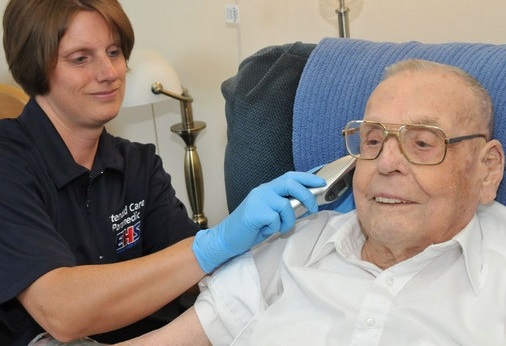Paramedic drop-ins cause call-ups to dip
There is no doubt of the life-saving response paramedics provide in a emergency, but a new report says ambulance workers may be able to prevent future incidences as well.
 A study of Emergency Medical Service (EMS) staff in Montreal says that an occasional visit from paramedics to review healthy lifestyles, measure blood pressure, assess diabetes risk and risk of falls - can lead to a 32 per cent reduction in emergency calls.
A study of Emergency Medical Service (EMS) staff in Montreal says that an occasional visit from paramedics to review healthy lifestyles, measure blood pressure, assess diabetes risk and risk of falls - can lead to a 32 per cent reduction in emergency calls.
A test was conducted at a Canadian subsidised housing complex with around 280 residents, predominantly low income seniors. Two paramedics provided weekly drop-in sessions to check-up and talk to residents. Early data showed a drop of close to third in the amount of EMS calls from the building.
“As members of the health team on the front line, paramedics can play a valuable role in reducing the risk and improving the health of seniors,” says Dr. Gina Agarwal, associate professor in the department of family medicine at McMaster University and author of the study.
The residents covered a broad range of ailments. Of the average 25 per cent of residents over age 65 participating during the project's eight months; 60 per cent had an elevated body mass index, 40 per cent reported a low level of physical activity, one-third smoked, one-third had a high salt intake, one-third had a high fat intake, and 50 per cent had high blood pressure.
Of the residents with high blood pressure, 80 per cent were already on medication for it. Updated readings were also passed on the family doctors, who were able to make more precise adjustments to medications.
“The paramedics discussed one or two risk factors, such as smoking, lack of exercise or diet at each visit, tried to link residents to community resources and give advice, and then followed up to see how residents were managing,” says Dr. Agarwal.
Paramedics were able to make referrals to the facility’s in-house exercise program, diabetes foot care and education program, and to family doctors.
“With their regular presence thanks to the weekly schedule, the paramedics seem approachable,” says Dr. Agarwal.
“The number of new attendees keeps rising, with word of mouth. The high number of multiple visits also indicates a hunger for this type of health information when it's so readily available.”
“Communication is the key here. Discussing preventive behaviours and making the advice accessible is important for people of all age groups and backgrounds,” says Canadian Heart and Stroke Foundation spokesperson Dr. Beth Abramson.
“Community-based health programs like this can be a very effective way to promote good health and prevent chronic conditions. We can all learn from this experience.”
The on-going project will continue for the rest of this year, at which time a complete report on the benefits and drawbacks of paramedics visits will be released.







 Print
Print